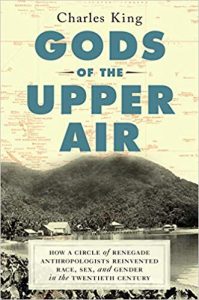What I liked most about my work in the Foreign Service were the opportunities to for interaction with other systems and cultures. I used historical-anthropological method and came up with lots of insights beyond the simple joy of doing the work, but I always kept in mind the limits of my understanding. I was always an outsider and should never let myself believe otherwise.
We cannot be objective
And my interpretations were very much colored by my own perspective. Even if I was somehow able to recall and report what people told me w/o any of my own interpretations (not possible, BTW), the questions I asked would shape the narrative. I noticed that my “memorandums of conversation” had lots of commonalities no matter the variety of people I met. There is no way around this. We cannot be objective. The best we can do is to broaden our outlooks. Despite the limitations, the insights are sometimes useful for others and almost always enlightening for the one making the observations. It is way to personal growth.
Life and times of Franz Boas
“Gods of the Upper Air” spoke to these concerns. The book is essentially a life and intellectual times of anthropologist Franz Boas and his students. It made me wonder about my own methods. I studied anthropology in college. I remembered reading Franz Boas, but remembered nothing specific besides the name. Nevertheless, it is likely that I internalized some of his ideas and methods, his emphasis on boots-on-the-ground observation and the need to look at cultures on their own terms w/o too many generalizations. When Boas was asked to generalize, the generalized only that people cannot use what they do not have.
Cultural relativism
The Boas groups believed in cultural relativism. I don’t buy the whole relativist idea. Rather, I think of culture in an ecological paradigm. Everything depends on the factors of the environment. Some cultures are better adapted to the current situation. They all have equal “value”, but they are not all equally valuable. But I cannot blame Boas. There has been a lot of advance in biological sciences as well as just experience since his time.
Marget Mead
Boas’ most famous accolade was Margret Mead. She was maybe one of our most influential anthropologists. She was mostly wrong about details. As the book outlines, she found what she was looking for rather than what was when doing her work in Samoa. She fell victim to the biases I described up top. The additional problem is the people you meet. The people outsiders are likely to meet are probably not the people who really know best.
… and Frasier Crane
Think of an anthropologist trying to understand the USA by hanging around in a bar and talking to the people there. The image that came into my mind was that old comedy series “Cheers,” the place where “everybody knows your name.” I think of the sophisticated and erudite Frasier Crane observing the natives. He might produce a better narrative, but it would be his narrative and maybe useful but not the truth.
The book is more joint biographies than anthropology. The members of the Boas circle were all weird. They were misfits in their own societies, which is maybe why they looked for meaning in others. Now I don’t know how much of this is the product of the narrative of the book and how much is how it was.
Taking it personally
The great thing about this book for me was the thoughts it provoked. I know this is very personal. I thought back to my education in history and the importance of evidence and narrative. I learned to “do” history in the tradition of Leopold von Ranke, with emphasis on primary sources and evidence and lack of confidence in unifying theories of history. Yes, I know it is old fashioned, but I still am a true believer in that method, adding to that the boots-on-the-ground imperative. Where I part company, however, is with the idea that we can find the truth, as Ranke said history as it really was.
But while we cannot find the truth in an absolute sense, we should continue to search for it, so that we can reject things that clearly are not true and so that we can come closer to at least a useful truth.
I am drifting from the book, but maybe that is the sign of a good book. I recommend it for those who studied anthropology and maybe even more those who did not. Lots of our routine ideas are influenced by these guys, whether we know it or not.
I wonder if my friend and colleague Rick Roberts knows this book.

John Matel's Memorial Blog
